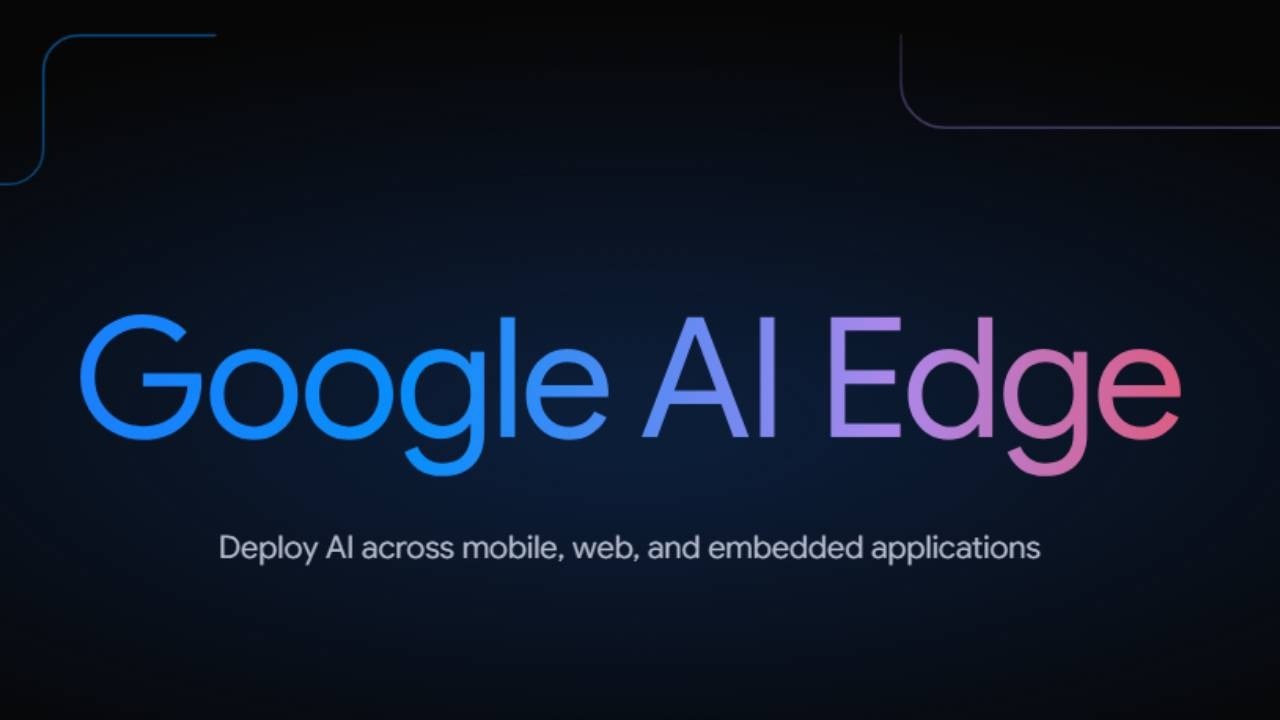Google has introduced the Google AI Edge Gallery app, allowing Android users to run various AI models locally on their smartphones without needing an internet connection. This app, currently in “experimental Alpha release,” retrieves and executes models from the Hugging Face platform using the phone’s built-in processor. While cloud-based AI models are typically more powerful, local operation alleviates concerns about data sharing and provides functionality without Wi-Fi. The app features shortcuts to tools like “Ask Image” and “AI Chat,” and includes a “Prompt Lab” for experimenting with single-task prompts. Performance may vary based on the device’s capabilities, with newer models running tasks more efficiently. Google encourages developer feedback and has released the app under the Apache 2.0 license, making it available for public and commercial use. An iOS version is expected soon.
Source link
Google Empowers Android Phones to Run AI Models Offline
Docling: An Open-Source Toolkit for Enhanced Document Processing
The Docling processing pipeline utilizes a Layout Analysis Model based on RT-DETR, trained on the human-annotated DocLayNet dataset, to classify document elements like paragraphs, section titles, and tables. It features TableFormer, a vision-transformer adept at recovering table structures from complex layouts, even when faced with partial borders or hierarchical headers. Users simply feed page images into the Layout Analysis Model, which identifies the necessary components, while TableFormer addresses table regions specifically. The system also integrates EasyOCR for Optical Character Recognition when needed. Docling is user-friendly, allowing for conversion via a simple Python command or a command-line interface. Key applications include retrieval-augmented generation, knowledge base creation, fine-tuning of large language models (LLMs), and integrating enterprise data, making it a versatile tool for diverse data processing needs.
Source link
Top AI Startups to Watch in 2025: The Most Valuable Innovators
The AI sector has experienced explosive growth in 2025, with numerous startups achieving multi-billion-dollar valuations. Leading the pack is OpenAI, valued at $300 billion after a significant funding round. This company, known for generative AI tools like ChatGPT, benefits from strong partnerships, particularly with Microsoft. Anthropic follows with a valuation of $61.5 billion, focusing on safe and interpretable AI systems. Databricks, valued at $62 billion, specializes in data analytics and machine learning solutions. Other notable companies include xAI ($24 billion), Safe Superintelligence Inc. ($32 billion), and core players like Scale AI ($14 billion) and Thinking Machine Labs ($9 billion). Startups like Shield AI and Harvey cater to niche sectors such as defense and legal tech, respectively, highlighting the diversity in AI applications. Overall, the substantial investments and rising valuations reflect a vibrant, competitive landscape marked by innovation and ethical considerations in AI development.
Source link
Google Unveils App for Offline AI Model Execution on Smartphones
Google has launched the AI Edge Gallery app, enabling Android users to run advanced AI models offline, enhancing privacy and performance. This means users can generate images, write code, and receive smart answers without internet connectivity, thereby reducing security risks associated with cloud servers. The app utilizes a compact yet powerful language model, Gemma 3 1B, allowing rapid text generation and interaction. Built on Google’s AI Edge platform and utilizing technologies like TensorFlow Lite and MediaPipe, it ensures efficient performance across devices, though older phones may face limitations. The user interface features include AI Chat, Ask Image, and a Prompt Lab for experimenting with AI prompts, all under an open-source license. While still in its experimental Alpha phase, an iOS version is in development. This launch occurs amid regulatory scrutiny of Google’s AI strategies, solidifying its role in making offline AI practical and personal.
Source link
Embracing AI Early: A Catalyst for U.S. Economic Growth – Financial Times
The Financial Times article emphasizes that early adoption of artificial intelligence (AI) is crucial for stimulating economic growth in the US. It highlights how leveraging AI technologies can enhance productivity across various sectors, driving innovation and efficiency. The article discusses the potential for AI to create new markets and job opportunities, while also outlining the challenges associated with its implementation, such as workforce displacement and ethical considerations. Additionally, it points out the importance of investment in education and training to prepare the workforce for the AI-driven landscape. The overall message underscores that proactive engagement with AI can position the US as a leader in the global economy, making it essential for businesses and policymakers to embrace this technological shift for long-term growth and sustainability.
Source link
Must-Watch YouTube Channels for Mastering Large Language Models in 2025
Large Language Models (LLMs) are now integral to various tech sectors, powering applications from virtual assistants to smart search engines. For those looking to develop skills in working with LLMs, YouTube stands out as a premier learning resource. Several channels provide practical lessons, simplify complex research, and showcase real-world projects focused on LLMs. These resources emphasize clear, straightforward explanations without unnecessary academic jargon, enabling learners to grasp the fundamentals and intricacies of these models effectively.
Source link
Google Launches ‘AI Edge Gallery’ App for Android, Enabling Local AI Model Execution on Devices
Google has introduced the ‘AI Edge Gallery’ app, enabling Android devices to run advanced AI models offline, allowing users to create images, answer questions, and write code without an internet connection. This app utilizes models from Hugging Face, including the compact Gemma 3 1B language model, which processes up to 2,585 tokens per second, enhancing privacy, speed, and offline capability. The app includes features like ‘AI Chat,’ ‘Ask Image,’ and a ‘Prompt Lab’ for refining prompts. It leverages Google’s AI Edge platform, ensuring efficient performance even on lower-end devices. Currently in an experimental Alpha release, the app is open-source and will soon be available for iOS. However, performance may vary based on device hardware; newer phones handle models better, while older ones might experience lag. Despite its advancements, Google’s AI strategy faces scrutiny, as evidenced by a recent antitrust investigation regarding a licensing agreement with AI startup Character.AI.
Source link
C3 AI Secures $450 Million Contract Expansion with U.S. Air Force Rapid Sustainment Office – Business Wire
C3 AI has announced an increase to its contract with the U.S. Air Force’s Rapid Sustainment Office, raising the total value to $450 million. This expansion enhances their collaboration to leverage artificial intelligence for predictive maintenance and operational efficiency within the Air Force. The partnership aims to utilize advanced AI technologies to optimize supply chains, reduce costs, and improve readiness of aircraft and equipment. C3 AI’s innovative solutions are designed to streamline operations and enhance decision-making processes. The contract extension signifies a commitment to bolstering the Air Force’s capabilities through cutting-edge technology. This development highlights the growing importance of AI in defense and military applications, as the Air Force seeks to improve operational sustainability and overall efficiency. The collaboration reflects ongoing efforts to integrate AI across various operational protocols within the armed forces, ultimately aiming for improved performance and resource management.
Source link
Weekly Recap: Perplexity Labs Aims to Take on Your Workload
In this Week in Review, highlights include the launch of Perplexity Labs, an AI-powered tool that helps users create reports, dashboards, and more in about 10 minutes. Additionally, Oculus founder Palmer Luckey has partnered with Facebook to develop extended reality devices for the U.S. military named EagleEye. A concerning survey by the World Economic Forum reveals that 40% of employers may reduce staff due to AI automation. The Browser Company is considering selling or open-sourcing its Arc Browser to shift focus to a new AI browser called Dia, while Opera is also entering the fray. In security news, LexisNexis suffered a breach affecting over 364,000 individuals, and hackers accessed the personal phone of White House chief of staff Susie Wiles. On a positive note, Gmail now automatically summarizes emails with its new Gemini feature. Finally, General Catalyst invested $1 billion in Grammarly, and Tinder is testing a height preference feature for users.
Source link









